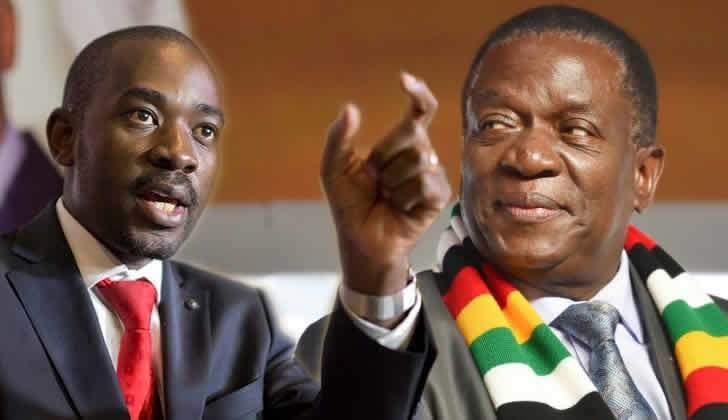Opinion / National
Navigating the Zimbabwe crisis: Exploring paths to resolution
16 Dec 2023 at 07:08hrs |
0 Views

Introduction:
Zimbabwe finds itself at a critical juncture, grappling with a multifaceted crisis that encompasses political instability, economic challenges, and social unrest. As the nation stands at the crossroads, it becomes imperative to explore viable options for resolving the crisis and charting a path towards a more stable and prosperous future.
I. Political Reconciliation and Inclusive Governance:
1. National Dialogue:
Initiating a comprehensive national dialogue involving all political stakeholders, civil society, and marginalized groups is essential. This process should address historical grievances, power-sharing arrangements, and the establishment of inclusive governance structures.
2. Constitutional Reforms:
Undertaking constitutional reforms to ensure a more balanced distribution of power, protection of human rights, and mechanisms for accountability can contribute to a more stable political environment.
II. Economic Restructuring and International Support:
1. Economic Reforms:
Implementing structural economic reforms, including fiscal responsibility, anti-corruption measures, and promoting private sector growth, can help address Zimbabwe's economic challenges.
2. International Assistance:
Seeking support from the international community, including financial assistance, expertise in economic management, and capacity building, can provide much-needed resources and guidance to facilitate economic recovery.
III. Social Cohesion and Reconciliation:
1. Truth and Reconciliation Commission:
Establishing a Truth and Reconciliation Commission can help address historical injustices, promote healing, and foster unity by providing a platform for victims to share their experiences and for perpetrators to be held accountable.
2. Investment in Education and Social Services:
Prioritizing investment in education, healthcare, and social services can uplift communities, reduce poverty, and contribute to social stability.
IV. Strengthening Rule of Law and Human Rights:
1. Judicial Independence:
Ensuring an independent and transparent judiciary is crucial for upholding the rule of law and protecting human rights.
2. Human Rights Protections:
Implementing measures to safeguard human rights, freedom of expression, and civic participation is essential for building a democratic and just society.
Conclusion:
The resolution of the crisis in Zimbabwe demands a comprehensive and collaborative approach. By prioritizing political reconciliation, economic restructuring, social cohesion, and the protection of human rights, Zimbabwe can overcome its challenges and move towards a more stable and inclusive future. International support and engagement will play a pivotal role in facilitating these reforms and fostering sustainable development. The path to recovery requires a collective commitment to building a resilient nation that respects the rights and aspirations of all its citizens.
Zimbabwe finds itself at a critical juncture, grappling with a multifaceted crisis that encompasses political instability, economic challenges, and social unrest. As the nation stands at the crossroads, it becomes imperative to explore viable options for resolving the crisis and charting a path towards a more stable and prosperous future.
I. Political Reconciliation and Inclusive Governance:
1. National Dialogue:
Initiating a comprehensive national dialogue involving all political stakeholders, civil society, and marginalized groups is essential. This process should address historical grievances, power-sharing arrangements, and the establishment of inclusive governance structures.
2. Constitutional Reforms:
Undertaking constitutional reforms to ensure a more balanced distribution of power, protection of human rights, and mechanisms for accountability can contribute to a more stable political environment.
II. Economic Restructuring and International Support:
1. Economic Reforms:
Implementing structural economic reforms, including fiscal responsibility, anti-corruption measures, and promoting private sector growth, can help address Zimbabwe's economic challenges.
2. International Assistance:
Seeking support from the international community, including financial assistance, expertise in economic management, and capacity building, can provide much-needed resources and guidance to facilitate economic recovery.
1. Truth and Reconciliation Commission:
Establishing a Truth and Reconciliation Commission can help address historical injustices, promote healing, and foster unity by providing a platform for victims to share their experiences and for perpetrators to be held accountable.
2. Investment in Education and Social Services:
Prioritizing investment in education, healthcare, and social services can uplift communities, reduce poverty, and contribute to social stability.
IV. Strengthening Rule of Law and Human Rights:
1. Judicial Independence:
Ensuring an independent and transparent judiciary is crucial for upholding the rule of law and protecting human rights.
2. Human Rights Protections:
Implementing measures to safeguard human rights, freedom of expression, and civic participation is essential for building a democratic and just society.
Conclusion:
The resolution of the crisis in Zimbabwe demands a comprehensive and collaborative approach. By prioritizing political reconciliation, economic restructuring, social cohesion, and the protection of human rights, Zimbabwe can overcome its challenges and move towards a more stable and inclusive future. International support and engagement will play a pivotal role in facilitating these reforms and fostering sustainable development. The path to recovery requires a collective commitment to building a resilient nation that respects the rights and aspirations of all its citizens.
Source - Josh Mhambi
All articles and letters published on Bulawayo24 have been independently written by members of Bulawayo24's community. The views of users published on Bulawayo24 are therefore their own and do not necessarily represent the views of Bulawayo24. Bulawayo24 editors also reserve the right to edit or delete any and all comments received.
Join the discussion
Loading comments…







































